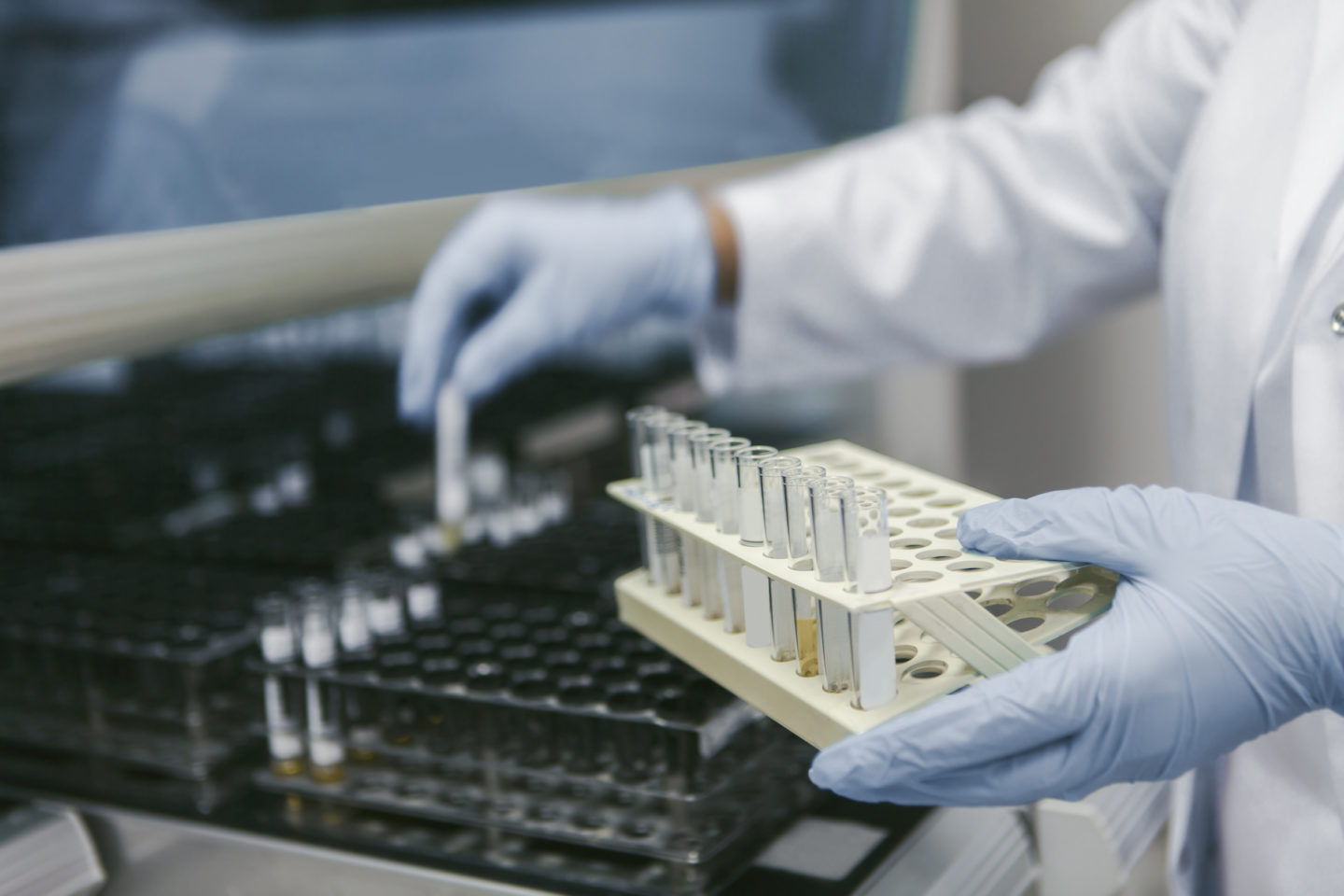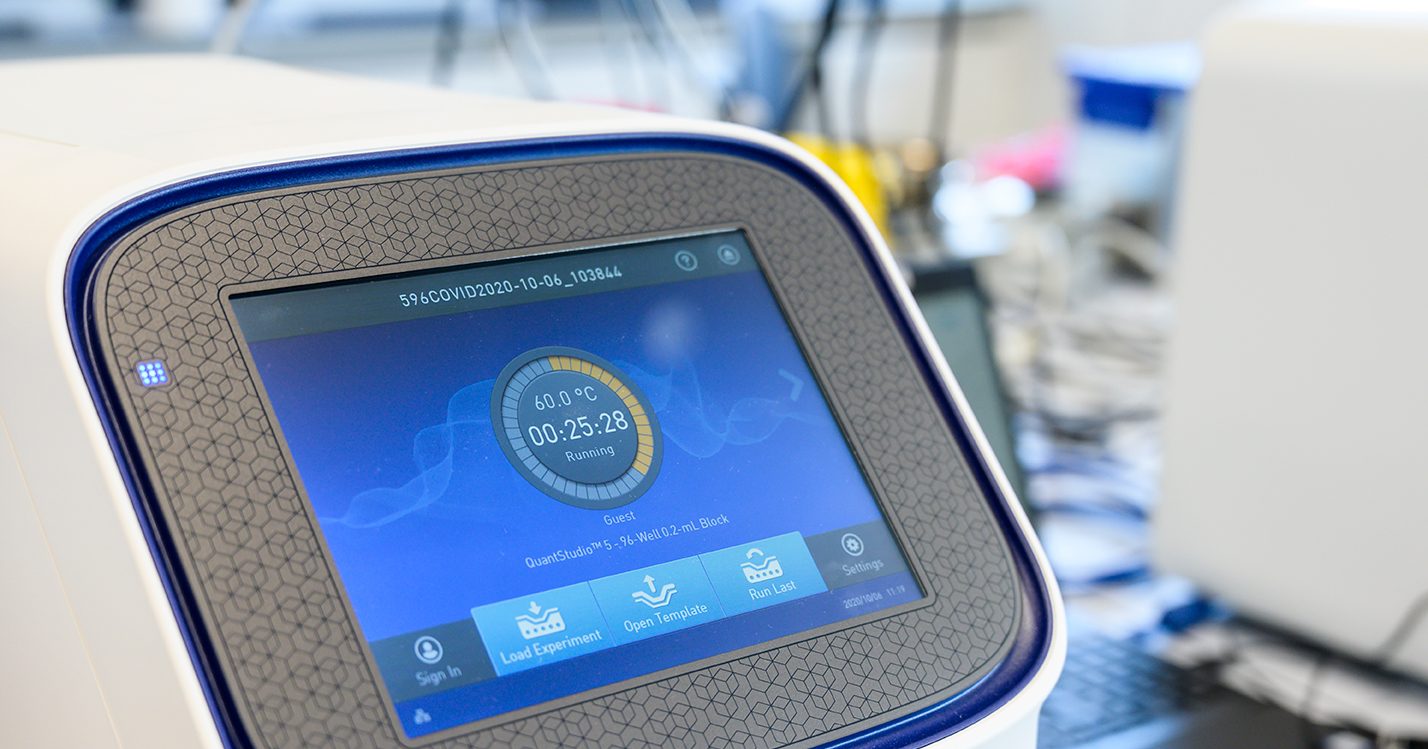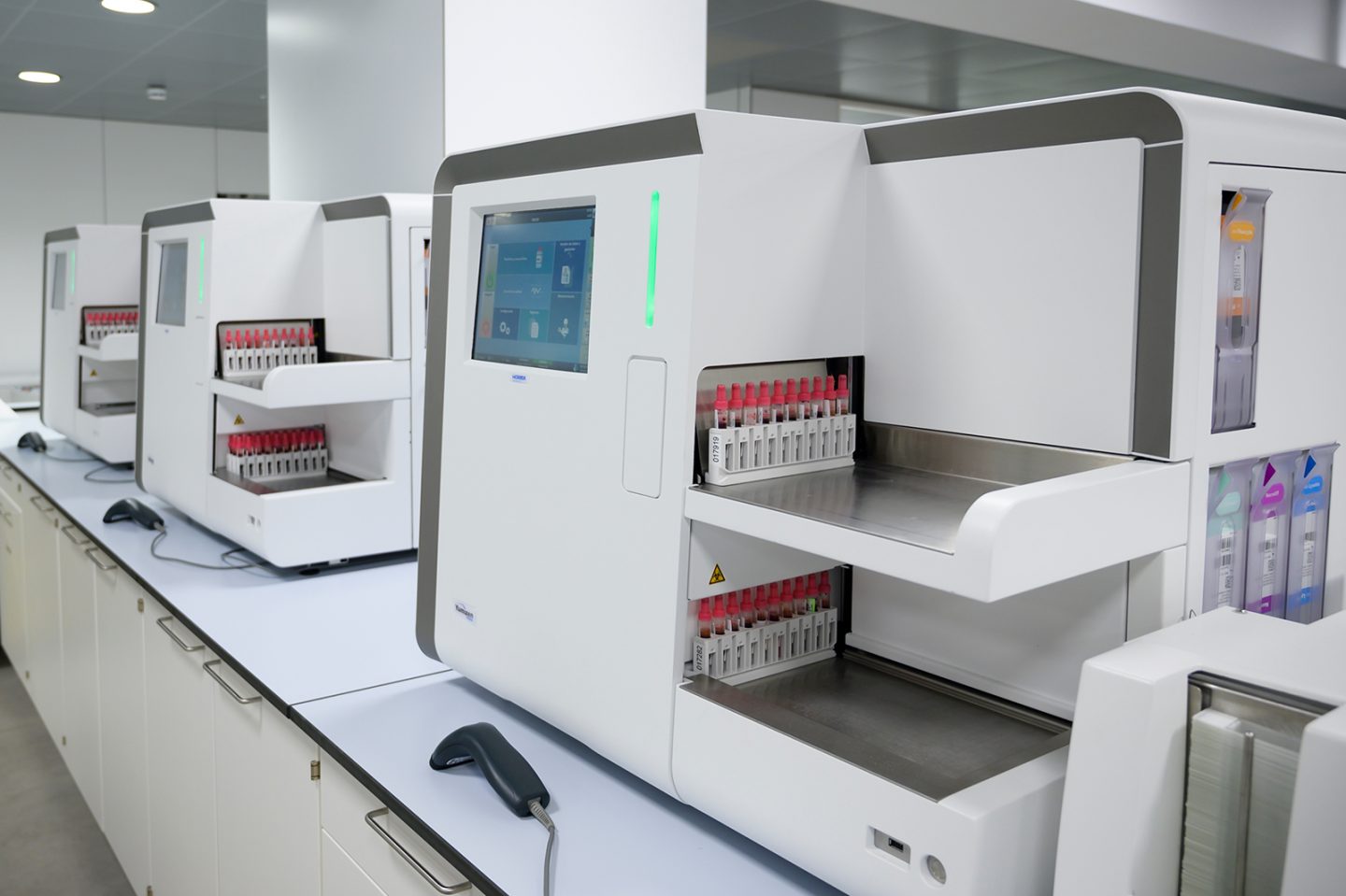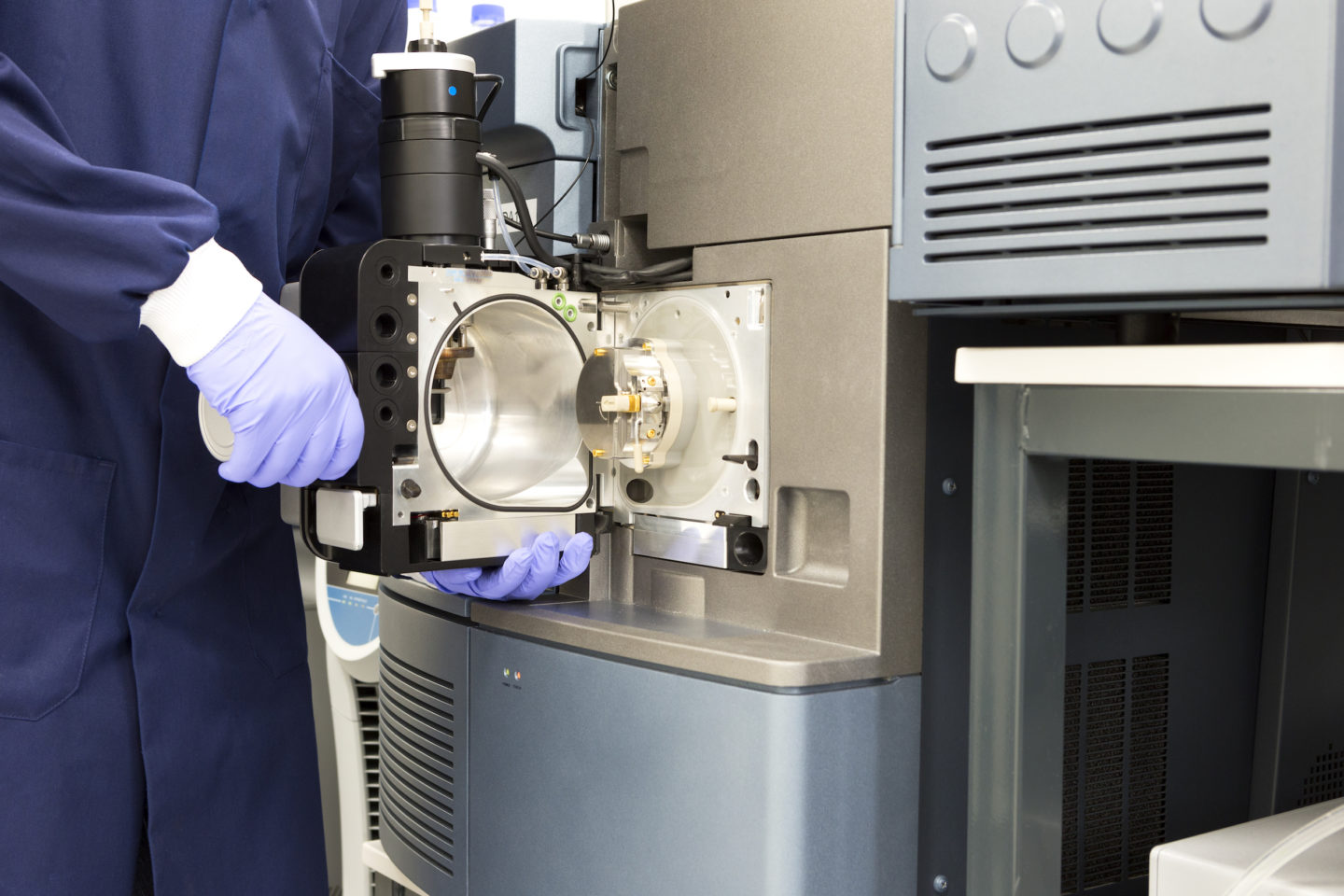Microbiology
The Clinical Microbiology unit has a multidisciplinary function. Its main activity consists of diagnosing infectious diseases in biological samples collected from the patient by demonstrating the causative agent of these infections. Techniques like antigen detection, staining or direct visualisation provide a rapid diagnosis. The cultivation and identification of the germ, together with the antibiogram, allow its level of sensitivity or resistance to antimicrobial agents to be found in order to choose the most appropriate treatment and ensure greater therapeutic success.
This unit is also responsible for the microbiological control of hospital areas and the isolation of pathogenic germs in food handlers.
Another of its key functions is to provide advice to patients, doctors and health centres in all aspects, clinical and epidemiological alike, within its competence.
Automated identification system
(MALDI-TOF mass spectrometry)
Automated antibiogram system
Automated blood culture system
Bacteriology
- Bacterial cultures
- Helicobacter pylori culture
- Multiresistant germ detection study
- Study of carriers (food handlers, etc.)
- Gram stain
- Chinese ink stain
Mycology
- KOH (direct visualisation)
- Fungal culture (skin, hair, nails...)
Mycobacteria
- Liquid medium culture (automated system
- Solid medium culture (Lowenstein-Jensen)
- Zhiel-Neelsen stain
Parasitology
- Identification of human parasites (faeces, urine, hair, skin, etc.)
- Culture of parasites (acanthamoeba, leishmania)
- Giemsa stain
Detection of antigens and toxins
- Helicobacter pylori
- Clostridium difficile
- Clostridium perfringens
- Legionella
- Streptococcus pneumoniae
- Streptococcus pyogenes (Group A)
- Rotavirus
- Adenovirus
- Astrovirus
Blood in stools
- Benzidine test
- Immunochromatographic test (monoclonal antibodies)
Detection of antigens and toxins
- Helicobacter pylori
- Clostridium difficile
- Clostridium perfringens
- Legionella
- Streptococcus pneumoniae
- Streptococcus pyogenes (Group A)
- Rotavirus
- Adenovirus
- Astrovirus
Digestion in stools
Clinical studies
Epidemiological control of associated centres





